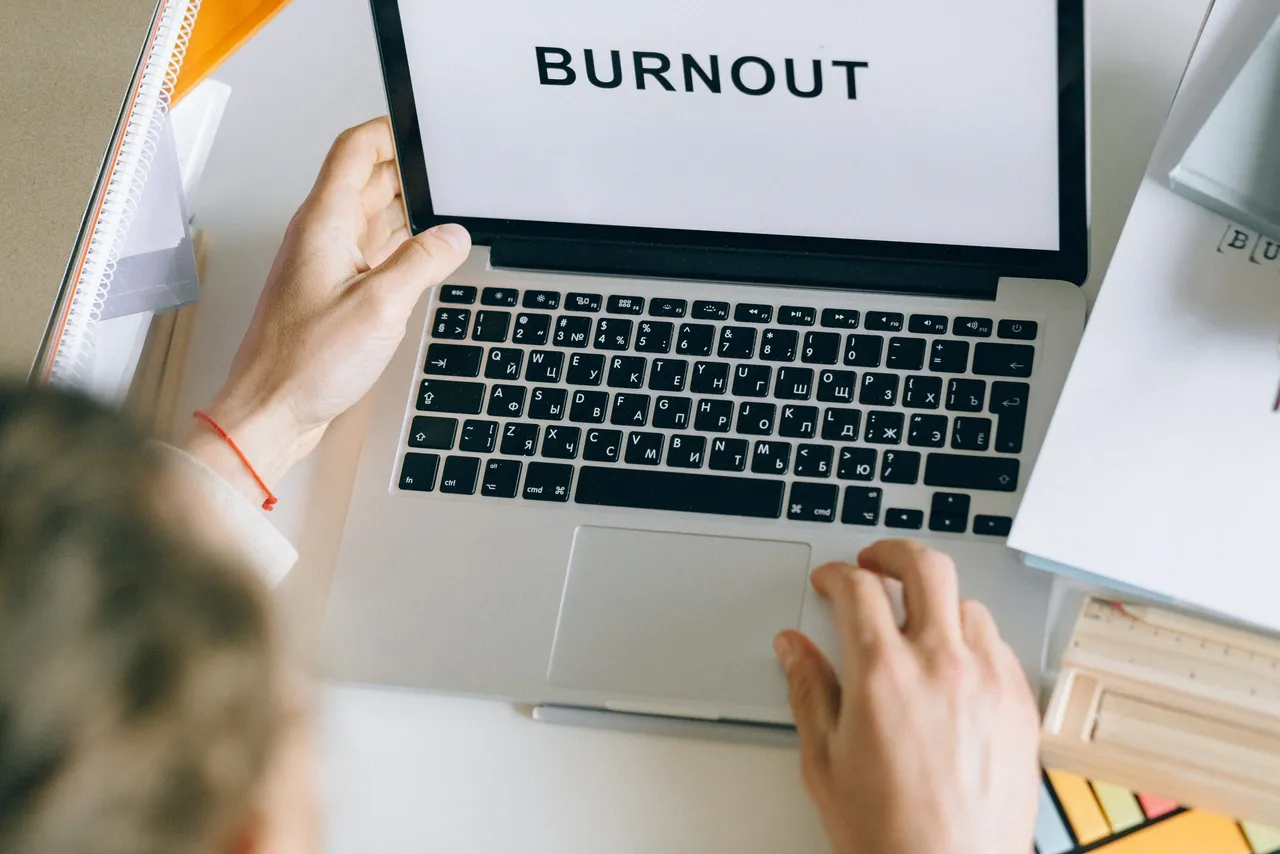“You will burn and you will burn out; you will be healed and come back again.”― Fyodor Dostoevsky

Does this sound familiar, “I feel stressed!”, “I can’t take this anymore, I am burning out!”?
As society evolves, so do the expectations that come with it, whether in professional or personal settings. This has given rise to increased reports of people feeling distressed or burnt out. Although it may seem that both conditions mean similar experiences, there must be some nuances that differentiate the two, other than spelling that is!
Let’s start off with the similarities first.
In the most basic sense, stress and burnout are forms of emotional disturbances. Feelings are typically associated with stress and burnout might include anger, fear, or sadness. Other likely secondary emotions that we may have could be disappointment, guilt, discouragement, and so forth. Prolonged stress and burnout eventually lead to complications in other areas of functioning and life. Our mental states suffer when we are in constant distress, as if there is a permanent dark cloud over our heads. We are also pushed closer towards unhealthy behaviours that provide temporary respite but are detrimental to our general well-being. Moreover, we are prone to shorter fuses as we are hurting emotionally. As a result, the quality of our interpersonal relationships also steadily declines.
Nonetheless, the above is just a brief snapshot of what stress and burnout signs look like. As we take a closer look at stress and burnout, we realise that both conditions have their unique characteristics and symptom expression.
Mostly, stress produces feelings of urgency. As such, people who are stressed tend to move quickly and utilize great amounts of energy to eliminate the stressor(s) immediately from their lives. However, in their attempt to remove the stressor(s), they are more likely to neglect basic needs (e.g., food, rest, etc.) which eventually causes their physical well-being to break down. They are exposed to a greater risk of developing various forms of health complications and chronic illnesses (e.g., cardiac diseases, diabetes, cancer, etc.).
On the flip side, people who experience burnout report feelings of numbness in response to the stressor(s) they are facing. The typical associated feelings include loss of motivation, loss of control, helplessness, and hopelessness. They might view life as not worth living anymore. Burnout is therefore seen as more of emotional damage, and as such, the healing process could take longer. People who experience burnout are at a greater risk of engaging in harmful behaviours, for instance self – injurious actions or suicidal attempts.
If you notice that you might be experiencing such symptoms, are if you know of others around you who might be suffering in silence, consider seeking professional advice.

Great article! It’s always fascinating to see how strategy and adaptability win in poker tournaments. The way AI is now shaping design-like with the Lovart AI Agent-reminds me of mastering a new table dynamic. Innovation is the real bluff-killer.
Interesting article! It’s smart to understand game mechanics – platforms like jilievo app casino are even incorporating odds analysis now. Responsible gaming is key, though! Always set limits and have fun. 🤔
It’s fascinating how mobile gaming taps into our reward systems! Convenience is key, and apps like jiliboss really streamline that experience – instant access is a powerful motivator. Definitely seeing a shift towards ‘play anywhere’ models!
That analysis of player ecosystems is spot on! Seeing platforms like jljl boss com really shift the focus to a full experience-slots, fishing, live dealers… it’s a smart move for the Philippines market. Interesting stuff!
Immersive live dealer games are so much more than just convenience – it’s about the experience! Setting up an account can be a breeze, like with a smooth phil168 login process. Great article – really highlights how far online casinos have come for Filipino players! ✨
Dice games are fascinating – so much strategy hidden in apparent randomness! Thinking about ‘skill’ versus ‘luck’ reminded me of platforms like ph77 login app download, where a calculated approach seems key to success. Legit security is a huge plus too!
Great article! Understanding odds is key, and platforms like fg77 online casino are making access easier for Filipino players. Quick registration & local payment options are a huge plus too! Definitely helps manage risk.
Interesting points about tilting & bankroll management! Seeing platforms like betpk app download apk emphasize strategic entry & verification feels smart – a solid foundation is key, both at the table & online. It’s about more than luck!
Solid article! Thinking about bankroll management & adapting to different game types is key. Seeing platforms like legend link games offer localized options (like Maya!) makes a huge difference for accessibility & play. Good stuff!
Roulette systems are fascinating, but remember variance is key! Seeing platforms like TG77 prioritize speed & mobile access-plus easy GCash deposits-is a smart move for modern players. Check out the tg77 app download for seamless play! It’s all about convenience, right?
It’s easy to get caught up in the excitement, but understanding the why behind your bets is crucial. Building a solid foundation, like those offered through jiliok login, can really shift your perspective & improve strategy. Responsible gaming is key!
Thanks for the breakdown-it’s always great to see balanced insights on AI tools. If you’re diving deeper, check out Best AI Tools for a well-curated directory of innovative solutions across various niches.
Responsible gaming regulations are crucial, and platforms like phlboss login games seem to prioritize security with their KYC process. It’s good to see convenient deposit options too – accessibility is key for players! Ensuring a safe environment is paramount.
It’s fascinating how choices shape development – even virtually! Thinking about long-term consequences is key, something explored in Bad Parenting. Really makes you consider different approaches! 🤔
Great article! It’s interesting how mobile gaming is becoming so popular in the Philippines. Have you checked out bl777 online casino? Heard their app makes it super easy to play on the go! Definitely worth a look.
Interesting analysis! Seeing a resurgence of classic gaming styles online is smart. Platforms like aceph game are bringing that traditional feel with modern convenience – good for the Philippines market, it seems! Solid post.
Alright, tried 888jiliactivity.com and had a decent experience. They got a fair range of online games. Easy interface to understand. Give it a try for some activity! 888jiliactivity
307bet… It’s an Okay site, nothing to special. I’d look for better alternatives before betting here. Here’s the 307bet if you still want to see.
Keno’s probability is fascinating, but managing risk is key! Seeing platforms like jljl55 play com offer localized options (like PHP & GCash) really enhances the user experience – accessibility matters for consistent play! 🤔
Lottery odds are fascinating – truly a study in probability! Seeing platforms like jili boss focus on user experience & speed is smart; quick access enhances the fun, even if luck’s the main factor! VIP verification sounds solid too.
Really interesting read! The simplicity of color prediction games sounds appealing – a nice break from complex strategies. I checked out lucky calico app casino and the quick registration with GCash is a huge plus for Filipino players! Definitely worth exploring.
Really interesting read! It’s cool seeing how platforms like phnn777 link are blending that classic casino feel with modern tech. Registration seems straightforward too – important for a smooth experience! 🤔
Alright, so I gave cwin666 a shot and honestly, it’s not bad! The games are pretty decent and I managed to snag a few wins. Definitely worth checking out if you’re looking for a new spot. Check them out here cwin666.
Great article! Seeing platforms like bee ph online casino really focus on quick sign-ups (under 90 seconds!) and localized payment options like GCash is a game-changer for accessibility. Makes getting started so much easier! 👍
It’s so important to be mindful of how we spend our time & money, especially with creative tools. I’m intrigued by platforms like AI Nano Banana – making editing accessible on any device is a huge step! Finding balance is key. ✨
Interesting take on risk management! Seeing platforms like bee ph login emphasize RTP is smart – a little edge helps. Quick registration (under 90 secs!) sounds appealing too. 🤔
Smart bankroll management is key, especially with so many online options now! Seeing platforms like phnn777 club focusing on secure registration (18+ verification is good!) gives me a little more confidence. Remember to play responsibly!
Really enjoying this article! The idea of data-driven insights in gaming is fascinating – reminds me of how 1plusgame app casino is changing things up for players in the Philippines. Definitely a new level of transparency! 🤩
That ‘jungle exploration’ vibe with Lodi646 PH sounds genuinely fun! It’s cool they prioritize safety and entertainment – a verified account unlocks faster payouts, right? Check out lodi646 ph com – might be a good way to unwind after a long day! 🦁🌴